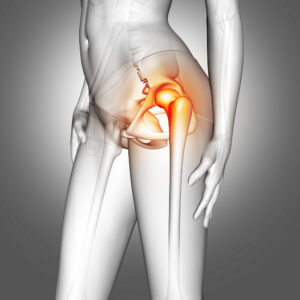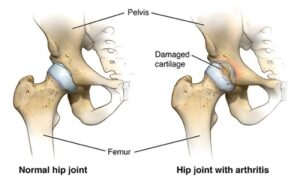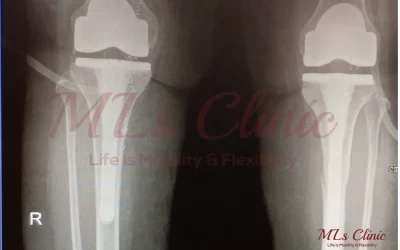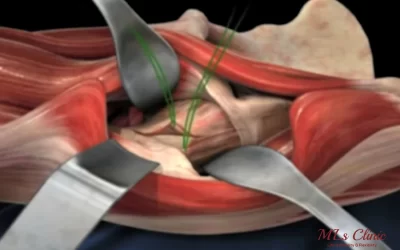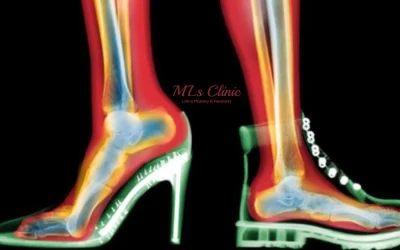Are You Suffering From Hip Pain? 6 big Hip Pain Causes One Must Know!
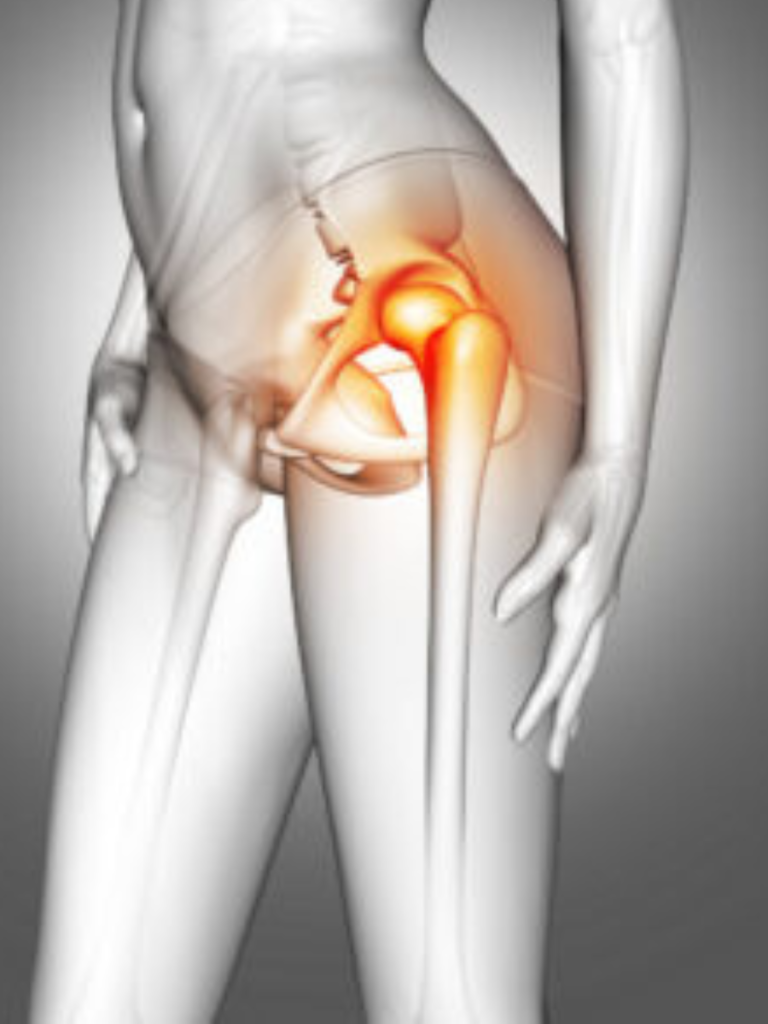
Hip pain is common and can happen due to sports injuries or arthritis. You can often manage it at home by resting. However, if the pain doesn’t go away or becomes more severe, you might need other treatments from Dr. Preetesh Choudhary at MLs Clinic, Indore is the Best Hip Replacement Surgeon.
Overview
What is hip pain?
Hip pain is the discomfort or ache you feel in or around your hip joint. The hip joint is where your thigh bone (femur) connects to your pelvis, and it’s one of the largest joints in your body. You use it all the time for movement, weight support, and balance.
The pain can be a minor, short-term issue or something that needs medical attention. The location of the pain can tell you which part of your hip joint is affected:
- Around your hip’s outer area: Usually linked to muscles, tendons, or ligaments.
- Deeper inside the hip joint: Likely due to bones or cartilage.
- In your lower back: Hip pain can sometimes spread to other areas like your lower back or groin.
The pain may come and go, worsening with movement and improving with rest. Some people feel more pain in the morning or at night, especially if they sleep on the painful side.
If the hip pain is severe and it interferes with your daily life, or lasts more than a few days without improving, you should see a healthcare provider.
Causes of Hip Pain?
The pain can come from many issues, such as arthritis, hip injuries (like fractures, hip labral tears, and dislocations), bursitis, and structural problems. Athletes who frequently move their hips in different directions, like dancers and gymnasts, are more prone to hip injuries and pain.
-
Tendonitis
Inflamed tendons, or tendonitis, are the most common cause of sudden hip pain. This often results from excessive exercise. While it can be very painful, it typically heals within a few days.
2. Arthritis
Arthritis leads to joint pain and inflammation, with hip arthritis being quite common. It manifests through symptoms like pain, swelling, and stiffness. Various types of arthritis that can cause pain include:
- Osteoarthritis.
- Rheumatoid arthritis.
- Ankylosing spondylitis.
-
Some Structural Conditions
Some people are born with hip shapes that aren’t typical, such as:
- Femoroacetabular impingement also known as FAI or Hip Impingement
- Developmental dysplasia of the hip (DDH)
These are often referred to as “structural abnormalities”. Depending on the condition, you might experience pain in hips either as a child or later in life.
4. Some Hip Injuries
Any damage to your hip joint can cause pain. Common causes of hip injuries include:
- Repetitive strain
- Sports activities
- Accidents, like falls or car crashes
Some frequent hip injuries that lead to pain are:
- Muscle strains, especially hip flexor strains
- Iliotibial band syndrome
- Labral tears
- Bone fractures
- Hip dislocations
-
Hip fractures
Hip fractures are common in older adults and those with osteoporosis, a condition where bones become weak with age or other factors.
Hip fractures cause sudden, severe pain and need immediate medical care. They can lead to complications like blood clots in the leg.
Fixing a hip fracture usually needs surgery, and you’ll likely need physical therapy to recover.
-
Less common causes
There are some less common conditions that can cause hip pain, like snapping hip syndrome and osteonecrosis (avascular necrosis).
-
Snapping Hip Syndrome
Snapping hip syndrome often occurs in dancers or athletes and is marked by a snapping sound or sensation in the hip. This snapping can happen when walking or getting up from a chair. It is usually painless but can sometimes cause pain. If snapping hip causes pain, it might indicate a cartilage tear or loose fragments in the hip.
-
Osteonecrosis (Avascular Necrosis)
Osteonecrosis, also known as avascular necrosis, occurs when blood flow to the bones is disrupted, either temporarily or permanently. This disruption can cause the supporting bone to weaken or collapse. Initially, the cartilage in the affected area may seem normal, but over time it can deteriorate. Eventually, the bones may fracture or collapse. The exact cause of osteonecrosis isn’t always clear. Factors like joint injuries, prolonged use of steroid medications or alcohol, and certain cancer treatments can increase the risk of developing this condition. However, in many cases, the cause remains unidentified.
- Currently, there is an increasing incidence of hip avascular necrosis in young patients who have tested positive for COVID-19. This observation highlights the need for further research to understand the underlying mechanisms and potential long-term effects of COVID-19 on bone health.
Treatment
You can often treat hip pain at home using the RICE method
- Rest
- Ice
- Compression
- Elevation
Medication
Dr. Preetesh Choudhary, renowned and best Hip Replacement Surgeon may recommend medications to alleviate hip pain and other accompanying symptoms.
Physical Therapy
Your Hip Replacement Surgeon might recommend physical therapy if you have arthritis or a structural problem causing hip pain. A therapist will teach you exercises and stretches to strengthen your hip muscles, improving stability and easing pain.
Hip Replacement Surgery
Most people with hip pain won’t need surgery, but your hip replacement surgeon might suggest it if the pain is severe and other treatments haven’t helped. Surgery could be necessary to fix a hip fracture or structural problem.
One common surgery is hip arthroscopy, where small cuts are made in your hip skin. A tool called an arthroscope with a camera and light is used to find and repair hip joint damage.
In some cases, you may need a hip replacement (hip arthroplasty), where your hip joint is replaced with an artificial implant. This might be recommended if hip pain affects your ability to stand, walk, or move.
Prevention of Hip Pain
Here are some suggestions to avoid hip pain:
You might not always avoid hip pain, especially from accidents or issues with your hip shape.
During sports or activities:
- Use proper protective gear.
- Stop if your hip hurts during or after activity.
- Rest after intense activities.
- Stretch and warm up before starting.
- Stretch and cool down afterward.
For safety:
- Keep home and work areas clear to prevent falls.
- Use safe tools to reach high places, avoiding standing on chairs or tables.
- If needed, use a cane or walker for walking difficulties or fall risks.
Dr Preestesh Choudhary, The Best Hip Replacement Surgeon says, “Hip pain is common, but you don’t have to endure it. If home treatments don’t help and it stops you from doing what you enjoy, visit us. We will find the cause and suggest ways to ease your hip pain so you can get back to normal activities”.
